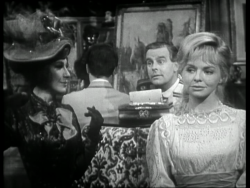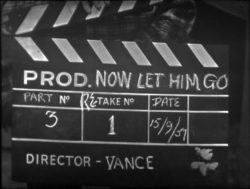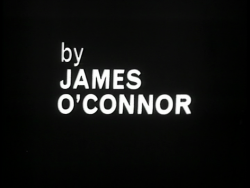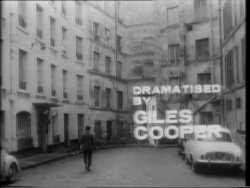by OLIVER WAKE

It occurred to me recently that with the obvious exception of Shakespeare, Oscar Wilde was surely British television’s most performed stage playwright. Perhaps unsurprisingly, the most-produced of his works has been his “trivial comedy for serious people”, The Importance of Being Earnest (1895). British television has staged this nine times (including heavily condensed versions) over the years, across three channels, in addition to mounting significant extracts at least three times. It is therefore surprising that, although the play has often been welcomed as a favourite, it has also been described as a play that is not “apt for television”. In this essay’s brief survey of versions of The Importance of Being Earnest, we will see why this claim was made and also get a sense of the shifting status of stage plays on television.
 Frank Cox, who died in April 2021 at the age of 80, was a television director and producer who worked on drama at the BBC and ITV across a period of more than forty years. Although his was never a household name, he was responsible for realising some of Britain’s most popular drama series and did much to boost the position of Scottish television drama.
Frank Cox, who died in April 2021 at the age of 80, was a television director and producer who worked on drama at the BBC and ITV across a period of more than forty years. Although his was never a household name, he was responsible for realising some of Britain’s most popular drama series and did much to boost the position of Scottish television drama.

 James O’Connor – often known as Jimmy O’Connor – wrote a number of popular and successful television plays in the 1960s and early ‘70s, regularly collaborating with director Ken Loach. He had an unusual background for a television dramatist. He was formerly a career criminal who had turned to writing while serving a life sentence for murder, having narrowly avoided being hanged.
James O’Connor – often known as Jimmy O’Connor – wrote a number of popular and successful television plays in the 1960s and early ‘70s, regularly collaborating with director Ken Loach. He had an unusual background for a television dramatist. He was formerly a career criminal who had turned to writing while serving a life sentence for murder, having narrowly avoided being hanged.  Giles Cooper is widely recognised as having been Britain’s greatest radio dramatist. He was highly prolific, writing dozens of original plays and adaptations for radio across a period of around 13 years. He was responsible for many of the medium’s masterpieces during the 1950s and his accomplishments were acknowledged posthumously with the BBC’s radio playwriting award being named in his honour. He also wrote for the stage, having particular success with his 1962 play Everything in the Garden, a dark comedy of middle-class suburban hypocrisy and greed.
Giles Cooper is widely recognised as having been Britain’s greatest radio dramatist. He was highly prolific, writing dozens of original plays and adaptations for radio across a period of around 13 years. He was responsible for many of the medium’s masterpieces during the 1950s and his accomplishments were acknowledged posthumously with the BBC’s radio playwriting award being named in his honour. He also wrote for the stage, having particular success with his 1962 play Everything in the Garden, a dark comedy of middle-class suburban hypocrisy and greed. 